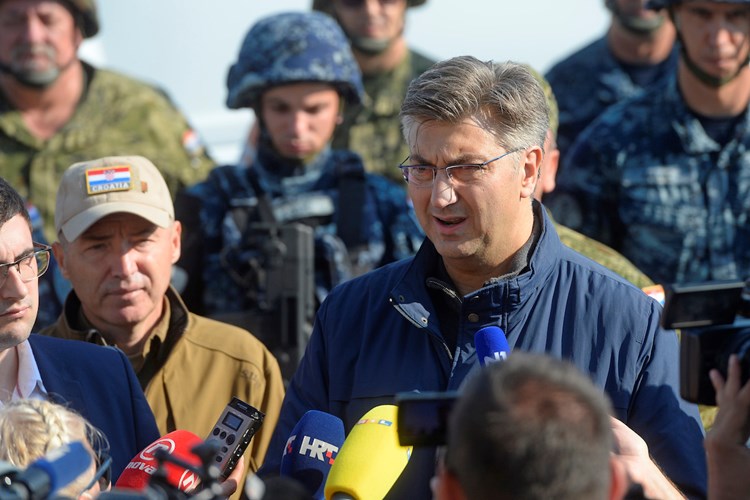- Published: 14.10.2018.
It's important to hear victims' testimonies, institutions should deal with crimes that have not been fully investigated
Commenting on Saturday's protest rally by war veterans in Vukovar, Prime Minister Andrej Plenkovic said on Sunday that war crimes investigation and prosecution was the task of law enforcement and the judiciary and that these institutions should deal with war crimes that had not been investigated or prosecuted yet.
Plenkovic made the statement while responding to questions from the press on the central Adriatic island of Dugi Otok where he was watching a Croatian military exercise.
"Many trials have been completed to date and some are still ongoing. However, there are certainly still war crimes that have not been fully investigated or prosecuted and I believe this task should be addressed by those institutions," the prime minister said.
Responding to a journalist's remark that in the perception of the public war crimes prosecution was proceeding very slowly, Plenkovic said that the justice minister and the State Prosecutor's Office (DORH) had said several times that actually a large number of war crimes cases had been prosecuted.
"I think there is a discrepancy between the reality and the perception of this matter because war crimes committed in Croatia, and in particular those that were committed in Vukovar, have also been prosecuted by the Hague tribunal and the specialised war crimes tribunal in Serbia. However, this work should continue," Plenkovic said.
Asked if Saturday's protest rally in Vukovar was also an anti-government protest because some of the protesters carried his picture, Plenkovic said: "There were some people there who obviously wanted to send such a message. What is important to me is that we hear victims' testimonies, that we take care of the people who lost everything at the start of the Homeland War and that we take note of their messages, especially institutions responsible for prosecuting war crimes."
Asked if there would be any sanctions for members of his HDZ party who took part in the protest, Plenkovic said he couldn't see why.
He was also asked if because of the Vukovar protest there would be any changes in relations with Serbia, to which he replied that "war crimes prosecution is a continued part of our dialogue and part of the criteria Serbia needs to meet under Chapter 23" in its EU accession negotiations.
Asked if any progress could be expected with regard to war crimes investigations to avoid similar protests happening again, Plenkovic said that during the term of his government the Police Directorate had set up a war crimes investigation task force which had effectively prepared several cases for trial.
Text: Hina
